Vietnamese leader Ho Chi Minh's 'link to Sussex' promoted
- Published
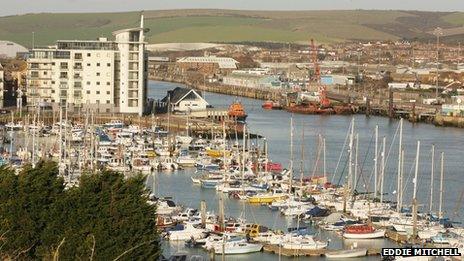
It is claimed revolutionary leader Ho Chi Minh worked on the Dieppe to Newhaven ferry following World War I
In the decades before Ho Chi Minh came to global prominence as leader of North Vietnam he formed his political ideals while travelling to London, Paris, Moscow and, now it is claimed, Sussex.
According to a Sussex professor and the local council, the communist revolutionary may have worked as a pastry chef on the Dieppe to Newhaven ferry following World War I.
Newhaven council plans to promote its link with Ho Chi Minh as part of a tourism drive that aims to highlight 10 little-known facts about the Sussex coastal town.
Other details that will appear on banners around the town include the landing of exiled French King Louis Philippe in 1848 and the fact that Lord Lucan's car was found abandoned at the port following the death of Sandra Rivett in 1974.
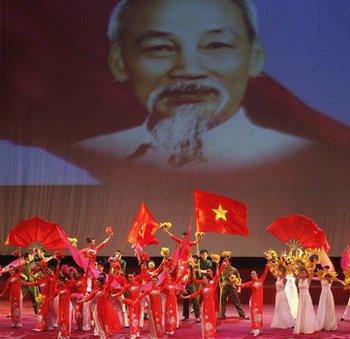
Ho Chi Minh is revered by the state and many people across the political spectrum in Vietnam
Martin Evans, professor of Modern European History at the University of Sussex, said he was first made aware of the town's link with Ho Chi Minh about 25 years ago.
"I visited Dieppe in the late 1980s as part of an official delegation to the Dieppe council. Talking to a local French communist, one of the things I was intrigued to hear about was that Ho Chi Minh had worked on the Dieppe to Newhaven ferry just after World War I."
Dr Evans added: "Certainly we know that in terms of his early career Ho Chi Minh, at various points, lived in the UK but essentially he came to France in 1917.
"He was attracted to France because France had been the home of the French Revolution so for him it was very much a political education.
"He lived in France from 1917 and it seems that it was after that that he worked on the Dieppe to Newhaven ferry as a pastry chef.
"We certainly know that he was at the Congress of Tours in December 1920 because we've got photos of that and he was one of the founders of the French Communist Party.
"It was an absolutely crucial moment in his life in a sense that as a young man now in France he was confronting new political ideas through the impact of the Russian Revolution which was very clear in France for the foundation of the Communist Party.
"It's a part of his life that perhaps we don't know about and I think that if Newhaven was able to advertise it in that way I think it would stimulate a lot of interest both within Britain and worldwide."
The Mayor of Newhaven, Graham Amy, said Ho Chi Minh was a regular visitor to the town.
"All towns have got their hidden histories... so for generations to come they'll know the story of Ho Chi Minh."
Sophie Quinn-Judge, a scholar and biographer of Ho Chi Minh, is a little more sceptical of his link to Newhaven but agrees that the times match with what they do know about him.
"That is a pretty original suggestion, so far as I know, but one cannot rule it out.
"At some point in 1913 he settled in London, with the goal of learning English. Given the postcards he sent to the well-known scholar Phan Chau Trinh in Paris, it is clear that he was not just an ordinary labourer."
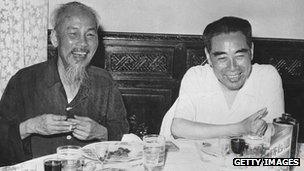
Dr Mark Frost said official accounts of Ho Chi Minh's early life portrayed him as a feature leader
In his autobiography, Ho Chi Minh mentions working in various jobs in London.
University of Essex history lecturer Dr Mark Frost said all the accounts of Ho Chi Minh's early life, including his autobiography, were open to debate.
He said: "The official Vietnamese accounts of Ho's early years, especially the work known, in English as Glimpses/Anecdotes from Chairman Ho's life (1948), are works of propaganda intended to reinforce Ho's proletarian credentials."
Dr Frost said the official accounts had a clear political purpose - to portray Ho Cho Minh as a simple, accessible, proletarian but one who stood apart as a future leader.
He added: "So, Ho may very well have worked on the Dieppe-New Haven Ferry as a pastry chef after WWI. It's entirely conceivable.
"I suppose it all depends on the reliability of the claim made by Martin's French communist."
- Published7 June 2012
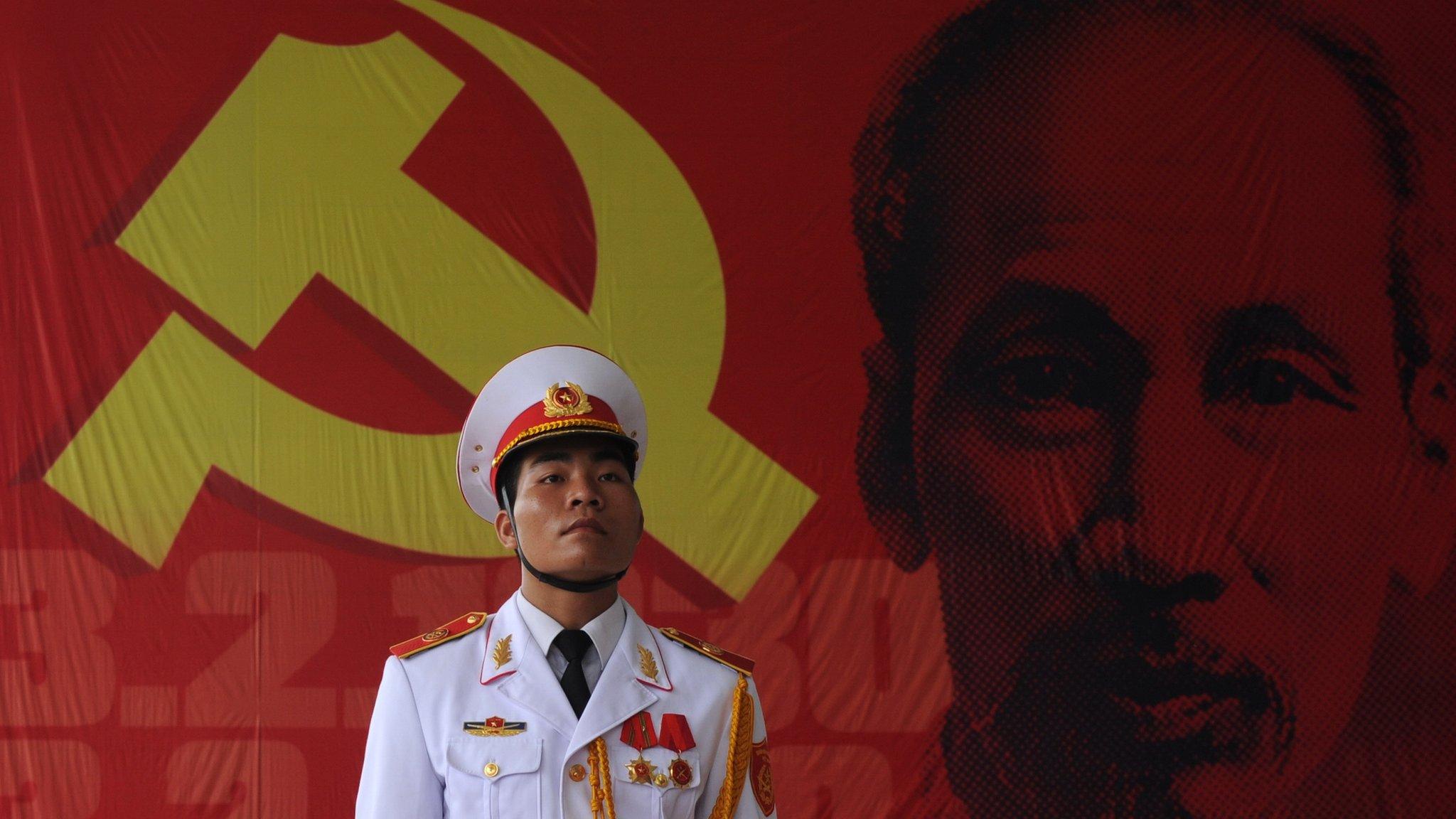
- Published21 December 2011
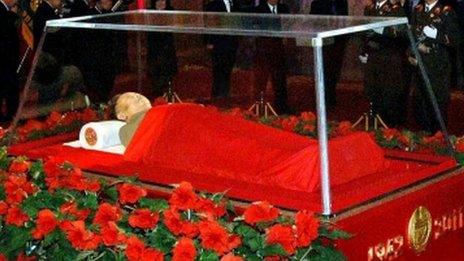
- Published23 October 2024
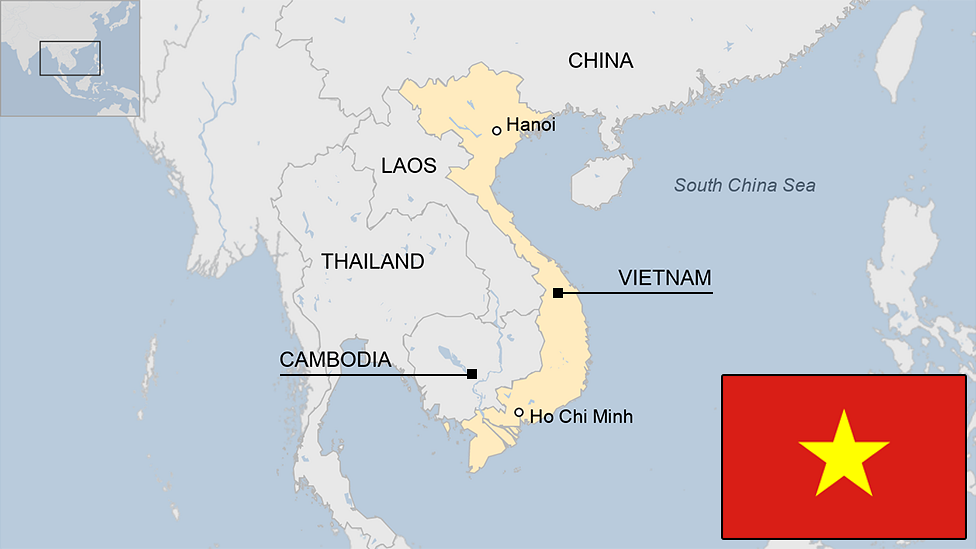
- Published22 April 2018